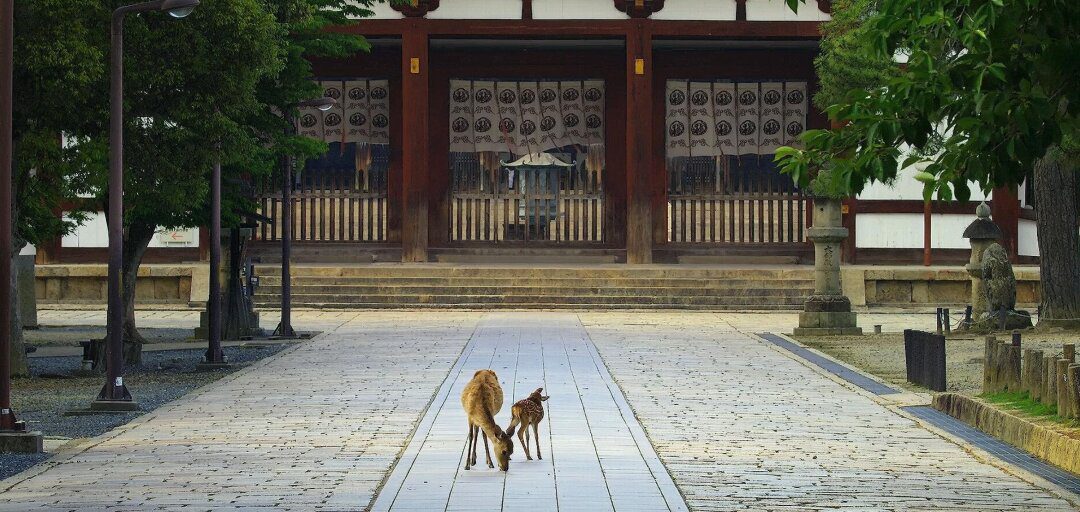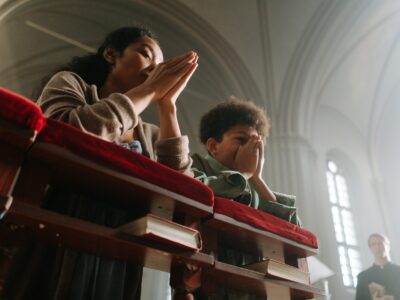As fellow inhabitants on our planet, we all have some impact on the lives of plants and animals, just like animals and plants have some impact on us. But how much of our behavior, exactly, dictates whether the plant and animal kingdom thrives, survives, or dies?
It’s been difficult to truly understand how greatly our presence matters to the lives of various species around the globe, until the year 2020, when so much human activity paused for a season. While people stayed home, the rest of the planet lifted its collective heads to look around, take a breath, and live a little.
The Year Earth Changed
Narrated by everyone’s favorite nature documentary narrator, David Attenborough, The Year Earth Changed showcases the dramatic and surprising transformation our planet’s ecosystem experienced while its dominant species’ activity came to a sudden halt.
Within days, cities in the United States experienced the best air quality they’d had in 40 years. Hidden for decades by smog in India, after just 12 days, the Himalayas were visible from 200 kilometers away. Six months after the start of the pandemic lockdown, the Ganges River saw an 80% increase in its oxygen levels.
From more in-depth conversations between humpback whales to a baby boom across the animal kingdom, a whole lot changed the year earth changed, making it blatantly clear just how much human activity contributes to the health and wellbeing of the rest of the world.
It also showed us how even small alterations can make a huge difference.
You can watch The Year Earth Changed on Apple TV.
Finding the Love: Faithifying Your Viewing
Rest is one of the very first mandates God gives to humanity. He modeled it in the very narrative of creation: “By the seventh day God had finished the work he had been doing; so on the seventh day he rested from all his work” (Genesis 2:2 NIV).
It is so important that God made it one of the ten commandments, “but the seventh day is a sabbath to the Lord your God. On it you shall not do any work, neither you, nor your son or daughter, nor your male or female servant, nor your animals, nor any foreigner residing in your towns. For in six days the Lord made the heavens and the earth, the sea, and all that is in them, but he rested on the seventh day. Therefore the Lord blessed the Sabbath day and made it holy” (Exodus 20:10-11 NIV).
In our buzzing, busy, driven society, God’s old-school Sabbath rule seems antiquated and unproductive. It certainly bucks against my German work ethic upbringing by which I defined my worth. If I wasn’t working hard, was I even worth anything?
The subversive gift of the Sabbath says yes. You are not defined by what you do. You are defined by who—and whose—you are.
Sabbath rest restores our bodies, our minds, and our souls. It is, as Abraham Heschel called it in his book about the Sabbath, “a palace of time with a kingdom for all. It is not a date but an atmosphere.”
When you live a Sabbath-defined life, you allow yourself, your neighbors, your family, and the world to dwell for a day or time in the kingdom of the Living God, just as they are, just because they exist. No demands are put on performance during the Sabbath, only rest, only nourishing the spirit. Sabbath is restoration.
Sabbath was so important to the Israelites that they elaborated even more about it, extending Sabbath rest to the natural world itself.
“For six years sow your fields, and for six years prune your vineyards and gather their crops. But in the seventh year the land is to have a year of sabbath rest, a sabbath to the Lord. Do not sow your fields or prune your vineyards. Do not reap what grows of itself or harvest the grapes of your untended vines. The land is to have a year of rest” (Leviticus 25:3-5 NIV). During that year of rest, if the field produced any food, then you could eat it, and so could your neighbor, the stranger among you, and even the wild animals.
Once every seven years, even the earth needs to rest from production, to regenerate soil, to sigh and be enriched.
And then, then, God tells the Israelites that every seventh Sabbath year cycle, or every 50th year, there is to be a jubilee, when everything is set free, everything is equalized, including land rights. “The land must not be sold permanently, because the land is mine and you reside in my land as foreigners and strangers,” God said. “Throughout the land that you hold as a possession, you must provide for the redemption of the land” (Leviticus 25:23-24 NIV).

The Year Earth Changed (2021) © Apple TV+. Image Courtesy of IMDb
Because of COVID, the year 2020 was a mandatory, non-negotiable jubilee year. Counting backward, the last jubilee year before that would have been 1970, which marked the beginning of the first Earth Day and the start of the Clean Air Act, leading to decades of policy reform and environmental action.
There is still work to do. The pandemic showed us just how much of a role we play in “providing redemption for the land,” and how even small accommodations can make a big difference. The Scriptures provide us an ancient roadmap that aligns with modern conservationist practices to cast a vision for a future hope and a restored planet that can sustain flourishing life for hundreds of years to come.
“We can transform the health of the planet,” Attenborough says in The Year Earth Changed. “Our lives are interconnected in deep and surprising ways. Now is the moment to find ways to share our planet with all the life on earth.”





 Copyright
2024
Root and Vine
Copyright
2024
Root and Vine